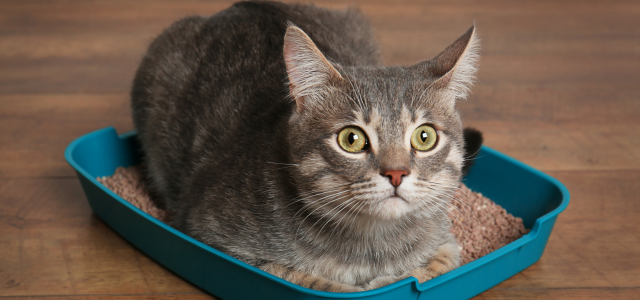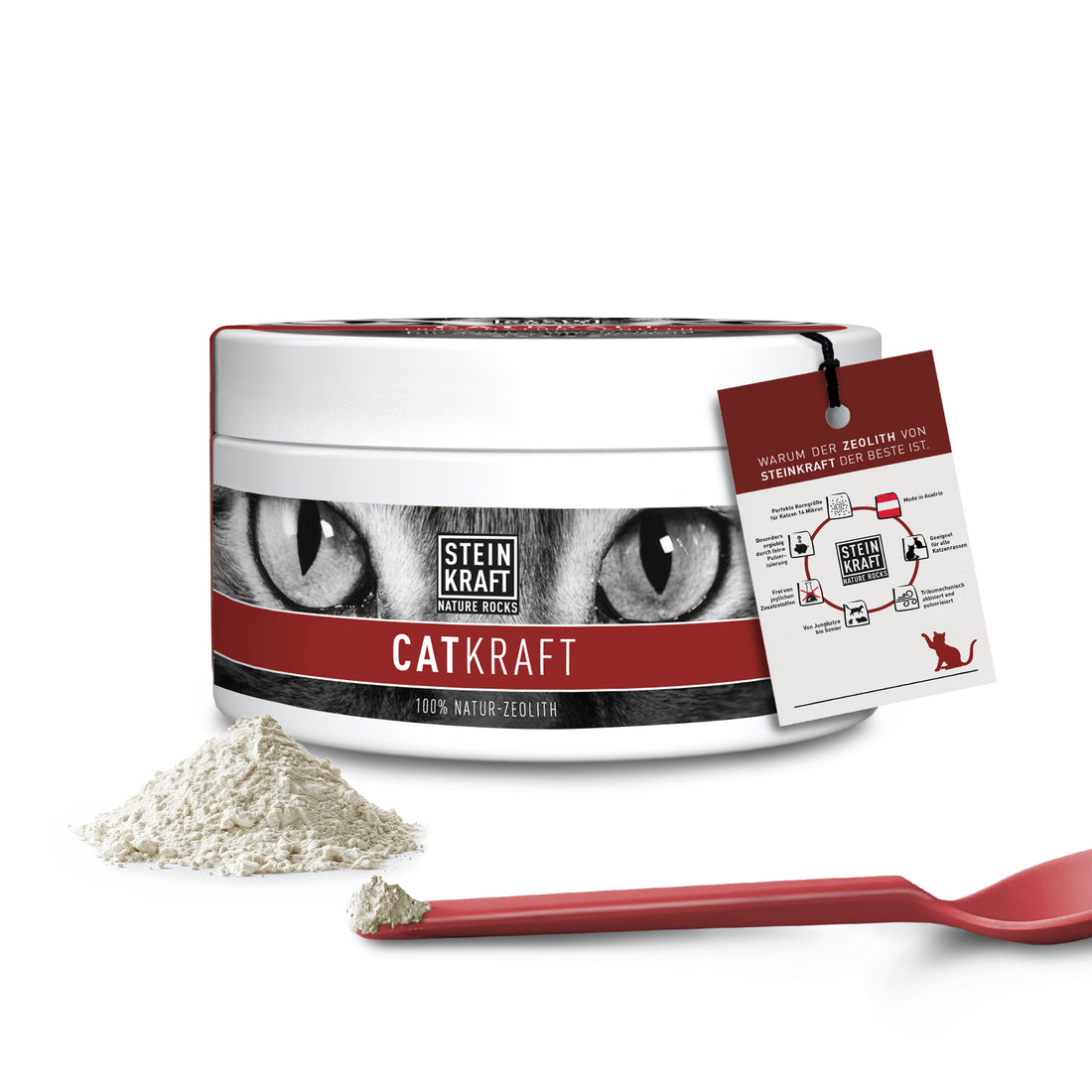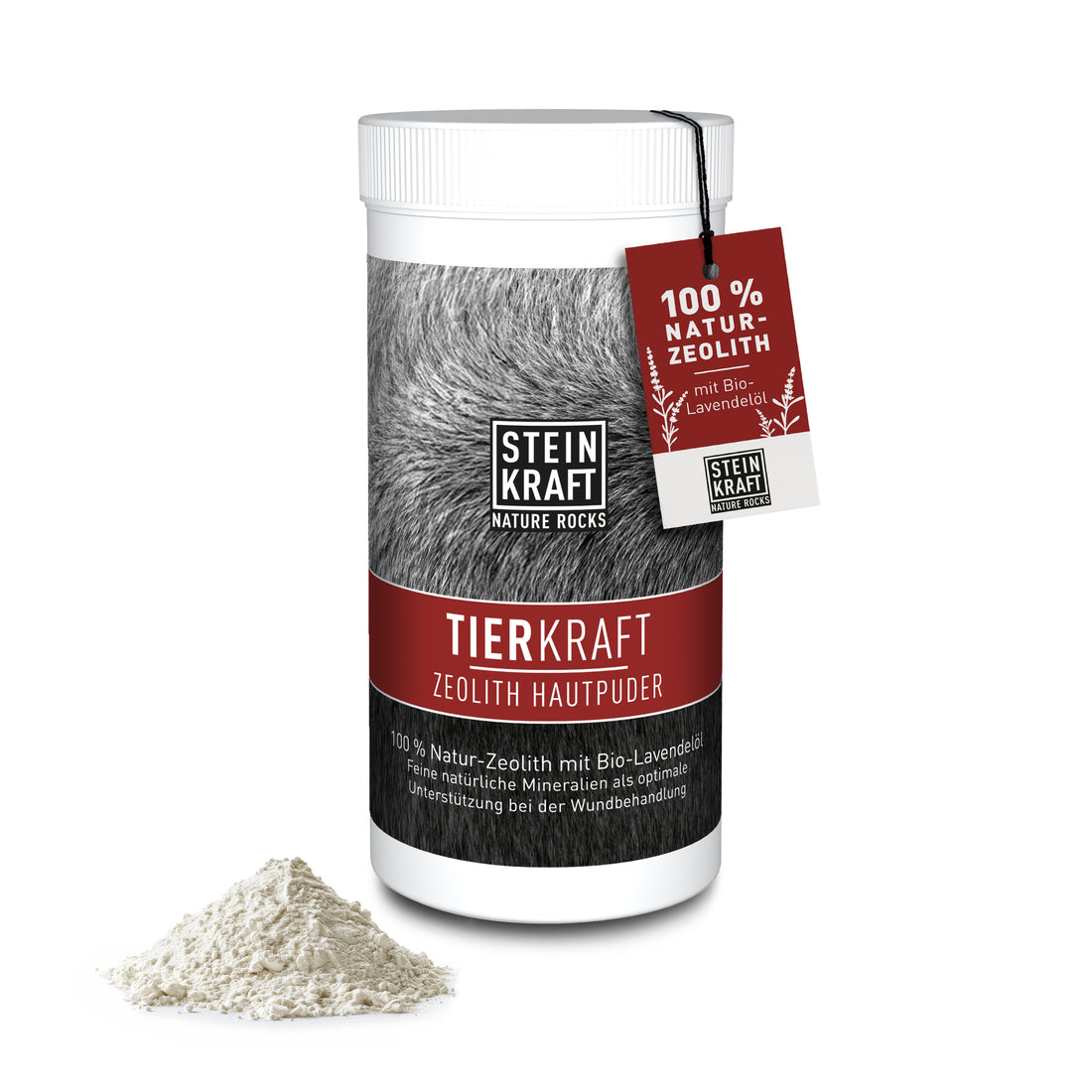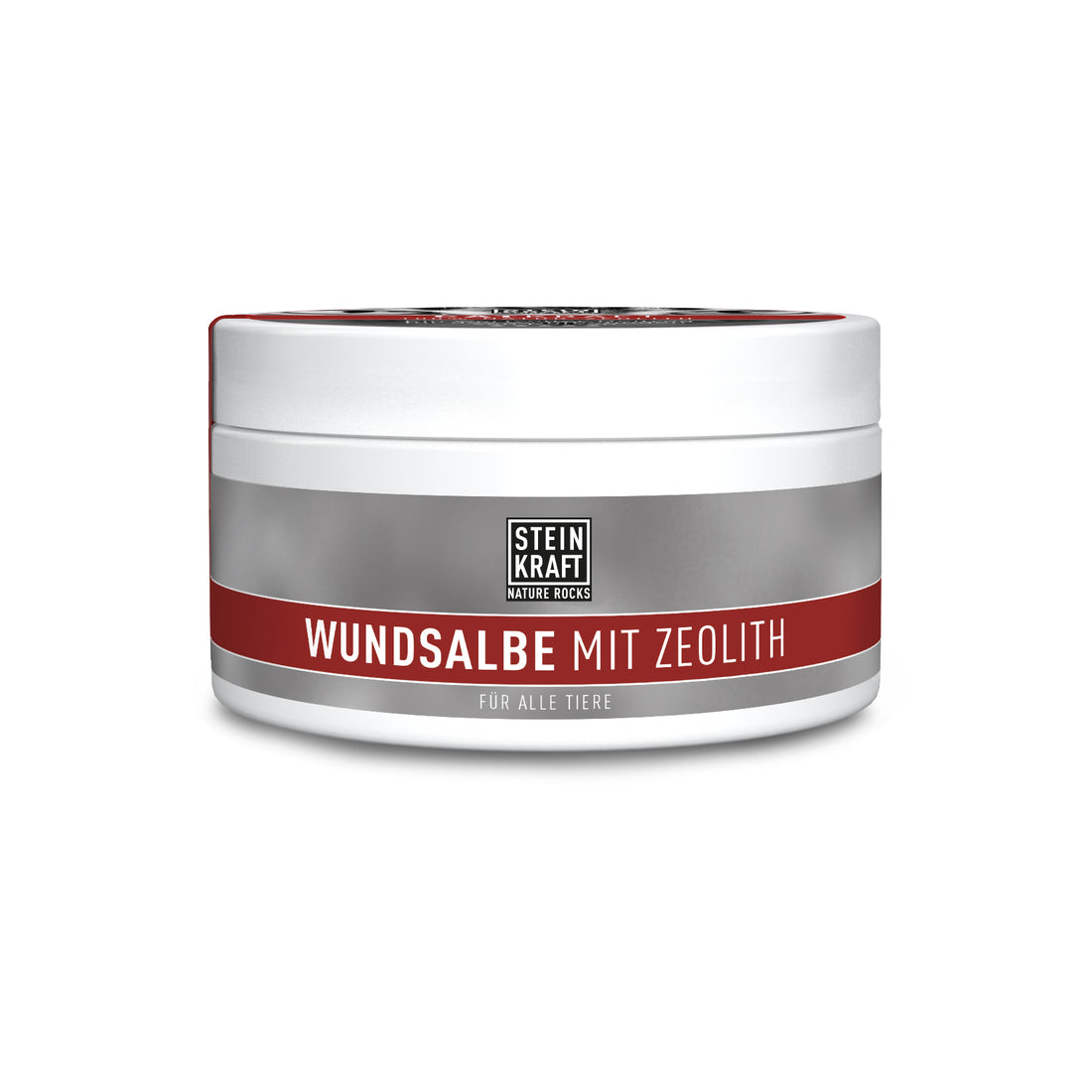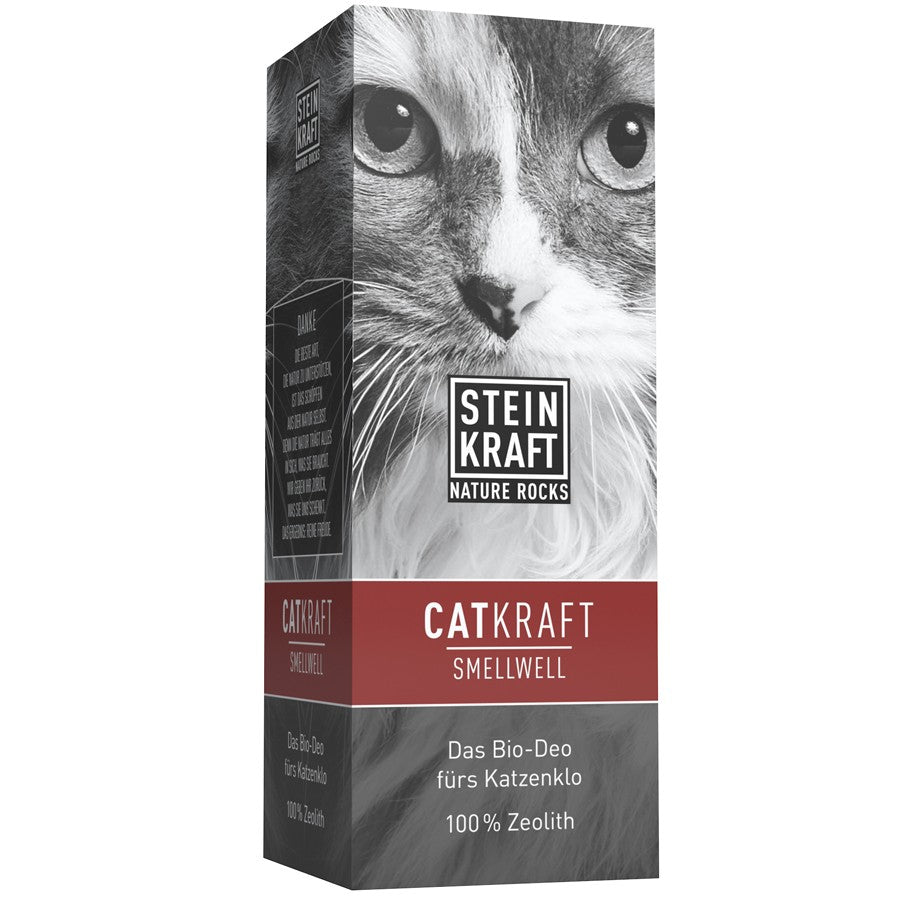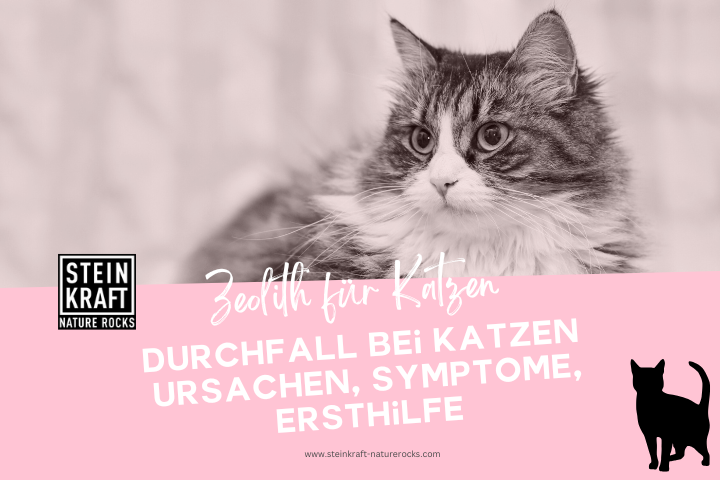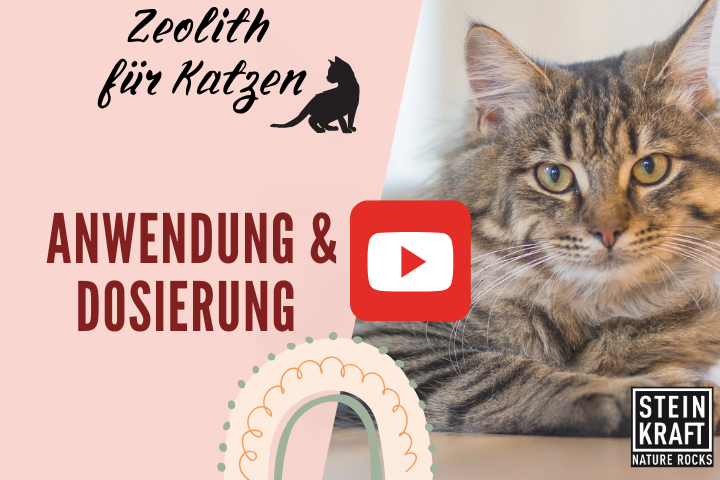Diarrhea in cats
1. When the heart is heavy and we have worries
You discover runny stool in the litter box – and your heart races. "What's wrong with my cat?" Perhaps she also seems quieter than usual, is eating less, or is showing you with a sad look: something's not right. As a pet owner, you're sensitive to any changes in your animal. And you know: diarrhea can be a warning sign in cats – sometimes harmless, sometimes serious. That's why it's important to know what causes it, what to look out for, and how you can help your cat – gently and naturally.
2. Diarrhea in cats – What's behind it?
Diarrhea (medically: diarrhea) means that your cat is passing unformed, loose, or watery stools – usually more frequently than usual. Diarrhea itself is not a disease, but a symptom. The body is trying to rid itself of something: harmful bacteria, toxins, or food that it cannot tolerate.
-
Acute diarrhea : lasts less than 14 days. It is usually caused by a simple trigger – a change in diet, parasites, or stress.
-
Chronic diarrhea : if it lasts longer than 2–3 weeks, it could be due to chronic inflammation, organ disease, or an allergy. A thorough diagnosis and investigation are important in these cases.
3. Causes at a glance
3.1 Harmless trigger
Not every case of diarrhea is cause for panic. Sometimes a new snack or a change in feeding routine is enough to upset a cat's sensitive digestive system. Stress from visitors, moving house, or new pets can also affect digestion.
3.2 Infections & Parasites
Bacteria, viruses, or parasites such as Giardia, coccidia, or worms are common causes. Regular stool checks are particularly important for outdoor cats. Some infections are mild, while others can severely strain the immune system.
3.3 More chronic diseases
If diarrhea recurs or persists, you should consider chronic causes: IBD (inflammatory bowel disease), colitis, liver or kidney disease, or hormonal disorders such as an overactive thyroid.
3.4 Foreign substances & toxins
Cats explore with their mouths and paws. Whether it's cleaning product residue, medication, plants, or plastic – anything can become toxic. A prompt veterinary examination is crucial.
4. Warning signs to watch out for
In addition to soft stools, the following accompanying symptoms should be taken seriously:
-
Blood or mucus in the stool
-
Frequent vomiting, loss of appetite, fever
-
Dehydration (dry skin, sunken eyes)
-
Apathy or restlessness
If you observe several of these signs, please go to the vet immediately. Better safe than sorry. That's our opinion.
5. First aid tips for home
-
Fresh water : Always provide it. Cats rarely drink much – but they need fluids when they have diarrhea. Chicken broth (without salt) can help.
-
Bland diet : Steamed chicken with a little carrot or rice is easily digestible. Offer in small portions.
-
Rest & observation : Avoid stress, note behavior, measure temperature, describe stool (color, consistency).
-
Gentle intestinal aids : psyllium husks, healing clay or zeolite .
🐾 Common causes and diseases that cause diarrhea in cats – and where zeolite can help:
| Cause / Disease | Description | Is zeolite useful? |
|---|---|---|
| Food intolerance | New type of feed, inferior feed, allergens (e.g., grains, beef) | ✅ Yes, zeolite can help soothe the intestines and bind toxins. |
| Change of feed | Changing food too quickly can irritate the intestinal flora. | ✅ Yes, gentle support during the adjustment period |
| Parasite infestation (Giardia, worms) | Common in outdoor cats or young cats | ✅ Yes, as an adjunct to veterinary treatment to bind toxins |
| Stress / Irritable Bowel Syndrome | Moving, vet visit, competition in the household | ✅ Yes, because zeolite can stabilize and soothe the intestines |
| Antibiotics / Medications | Medications can disrupt the intestinal flora and trigger diarrhea. | ✅ Yes, but only with a gap between taking the medication and administering it (at least 2 hours). |
| Chronic inflammatory bowel disease (IBD) | Inflammation of the intestinal lining, often with mucus/changes in stool. | ⚠️ Only use in consultation with a veterinarian, but zeolite can have a soothing effect. |
| Poisoning / Leftover food / Cleaning products | Ingestion of toxins or unsuitable food | ✅ Zeolite can quickly help bind and eliminate toxins. |
| Food poisoning (spoiled food) | Gastrointestinal reaction to bacteria, fungi, etc. | ✅ Yes, zeolite can support detoxification |
| pancreatic disease | Exocrine pancreatic insufficiency leads to undigested food in the feces. | ⚠️ Only as an accompanying activity after consultation |
| FIP or other viral diseases | E.g. with a severely weakened immune system | ⚠️ Only in consultation with a veterinarian – Zeolite does not replace therapy |
6. Steinkraft Zeolite – the natural power product
6.1 What is zeolite for cats ?
Zeolite is a volcanic mineral with a unique structure: fine pores and channels that can absorb water, toxins, and pollutants like a sponge. Our Steinkraft zeolite is exceptionally finely ground (14 µm), natural, sourced from eastern Slovakia (Košice), and tribomechanically micronized and activated in Austria. A true powerhouse from the earth.
6.2 How does it work for diarrhea?
-
It binds excess water in the intestines and ensures firmer stools.
-
Neutralizes toxins, harmful bacteria and metabolic waste products .
-
Protects the intestinal mucosa and supports regeneration.
-
Strengthens the gut microbiome , as it ensures a stable environment.
6.3 Success stories from practice
Many Steinkraft customers report that an improvement is noticeable after just 1-2 days. The stool becomes firmer, and the animal seems more relaxed. Zeolite has proven particularly effective for recurring diarrhea or sensitive digestive tracts.
7. Application recommendations
| Application | dosage | Notes |
|---|---|---|
| Steinkraft Zeolite Cat | approximately 1/8 teaspoon (0.3 g) daily | Mix directly into wet food |
| In case of emergency | up to ½ tsp per 2 servings | Always ensure access to water. |
| Longer-term as a treatment | ¼ teaspoon as a daily dose | Maximum 4 weeks at a time, then a break |
Tip: If your cat is sensitive, introduce it gradually. The fine powder is usually well-tolerated.
8. Emotional strength for you & your pet
Diarrhea is more than just a digestive problem. It makes you nervous, insecure, and worried. You want to help, but don't want to reach for medication right away? Then it's good to know: With your attention, your care, and natural support like Steinkraft Zeolite, you can actively do something. Give yourselves time. Watch for signs of improvement. And reassure yourself: We can get through this. Sometimes it comes back just as quickly as it came. The diarrhea.
9. Customer testimonials from our Steinkraft community
"Our cat Filou used to have loose stools. Since we started mixing Steinkraft Zeolite into his food, that's completely stopped. Thank you for this natural product!" *****
Petra M.
"I was skeptical at first, but after two days of zeolite, the diarrhea was gone. Our Luna eats it without any problems mixed with her wet food." *****
Martin E.
"Our vet recommended Steinkraft. It worked quickly, her stools are firm again, and our cat is noticeably more lively." *****
Sabine
"I love natural products – and this one has really helped us. Zeolite is now a standard part of our feed changes." *****
Lisa R.
10. Conclusion: Why Steinkraft Zeolite is your helper
-
Natural, pure, without additives
-
Fast-acting in cases of acute diarrhea or soft stools
-
Supports the intestines in regeneration and detoxification.
-
Scientifically proven effect
-
Tolerable and safe – ideal for accompanying or for treatment
🔍 Study situation & sources
-
Cat study (2020, Brazil) : 0.5–0.75% zeolite in food significantly improves stool consistency
-
Piglet study (2016) : Significantly less diarrhea, better intestinal flora with 0.5% zeolite in feed
-
Valpotić et al. (2017) : Confirms anti-inflammatory, immune-boosting effects of zeolite
-
EFSA (2013) : Assesses clinoptilolite as a safe feed additive for binding ammonium and toxins
📋 Tip for your everyday life

Keep a little diary of your cat's bowel movements: What does your cat eat, how often does she defecate, what does it look like? This will help you – and your vet – enormously if there are any follow-up questions. And it will give you the feeling: I'm keeping an eye on this and it's being lovingly observed by me.
If your kitten has diarrhea, we believe that adding zeolite litter is a great way to help control odors and germs in the litter box. Sprinkle it generously over the regular litter regularly. Check out the blog post about it now >>>
❓ Frequently asked questions about diarrhea in cats and zeolite - FAQ
What can I do if my cat suddenly has diarrhea?
Give her rest, fresh water, and easily digestible food like chicken and carrots. Steinkraft Zeolite can help bind excess water in the intestines and eliminate toxins. Observe her closely – if her condition worsens, please consult your veterinarian.
How quickly does Steinkraft Zeolite work for diarrhea?
👉 Many owners report a noticeable improvement within 1-2 days. Stool consistency often normalizes quickly, and the animal appears more vital again.
Can I administer zeolite for a longer period of time?
👉 Zeolite is ideal as a course of treatment (e.g., 3–4 weeks). A break is recommended afterward. For particularly sensitive animals, it can also be fed continuously in small doses – please discuss this with your veterinarian or naturopath.
Can I use Steinkraft Zeolite on kittens or older cats?
👉 Yes, and please dose carefully: a maximum of one pinch per day and always ensure good fluid intake. Always consult your veterinarian for sick or elderly cats.
What's the best way to mix zeolite into animal feed?
👉 The easiest way is to stir it into moist food. Some cats also like it dissolved in a spoonful of broth or mixed directly into their favorite treat.
Does zeolite also help with persistently soft stools or sensitive digestion?
👉 Yes! Especially for cats that frequently suffer from soft or mushy stools, Steinkraft Zeolite can help stabilize the intestinal flora and support digestion in the long term.
👉 Here you'll find the product of the month and a good overview of all STEINKRAFT product lines.
👉 Here you can find all STEINKRAFT products at a glance - directly in the shop


